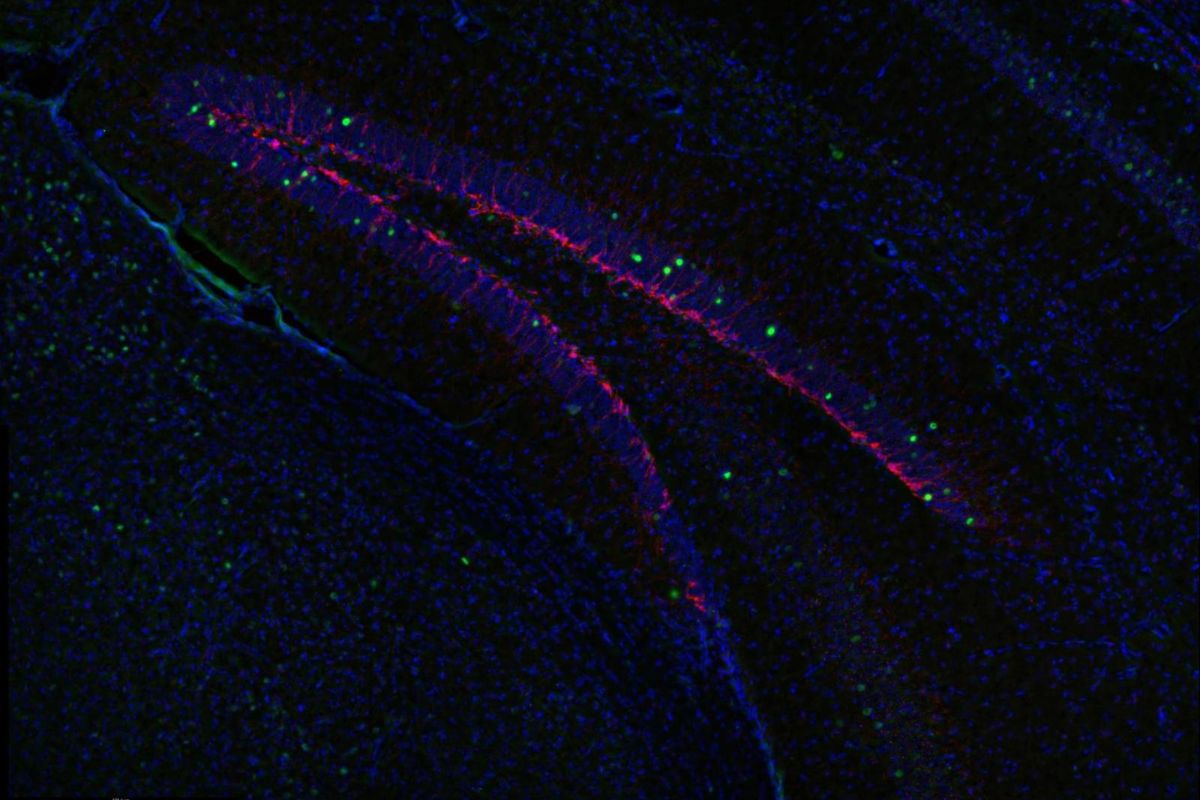It lasted less than a year for most of us, but it seems as if we’ll be studying it for decades. The isolation of COVID lockdowns strained the nation’s mental health, stunted the academic advancement of some schoolchildren, and wreaked havoc on the economy.
Now, new research suggests that lockdowns hampered adolescent brain development enough to spark notable changes in brain structure. Specifically, a group of University of Washington researchers observed a shift in cortical thickness – which appears to affect young women more dramatically.
“We think of the COVID-19 pandemic as a health crisis,” senior author and co-director of the UW Institute for Learning & Brain Sciences Patricia Kuhl said in a press release, “but we know that it produced other profound changes in our lives, especially for teenagers.”
Lockdowns Disrupted Adolescence
Adolescence might be best known as a crucible of hormones, but it also looms large as a major factor in the social-emotional and neurological development of our kids. And the disruptions to this critical stage of growth that lockdowns incurred have had (not entirely unexpected) consequences.
In a bid to quantify some of the consequences, the UW researchers combed through longitudinal MRI data and found that the lockdowns accelerated cortical thinning in adolescents. Young women showed an average of 4.2 years of accelerated brain maturation compared to 1.4 years in young men.
Before the pandemic, researchers had already amassed a collection of adolescent brain scans to build a normative model of cortical thickness changes as part of normal adolescent development. This model served as a point of reference that allowed the researchers to compare against brain scans taken post-lockdown.
These post-lockdown scans showed accelerated cortical thinning, especially in the areas linked to social cognition, such as the fusiform gyrus, insula, and superior temporal cortex. These areas play a vital role in processing emotions, empathy, language comprehension, and recognizing social cues. As a result, the researchers suggest that prolonged social isolation probably disrupted these functions.
Lockdown Affected Women More
Researchers observed a more obvious change in the female scans, which showed cortical thinning in 30 regions across both sides of the brain. The male scans revealed noticeable changes in only two regions, and both were in the occipital lobe.
This gender difference appears to reflect a broader swath of mental health research, which suggests that women are more vulnerable to stress-related disorders like anxiety and depression, especially during adolescence.
Pandemic lockdowns, along with their imposed isolation, robbed these young women of months’ worth of social interactions that appear to be critical for emotional support. This could explain the exaggerated influence on female development.
Social isolation seems to have had a less severe impact on young men, who don’t rely as much on the emotional support of their peers.
Reinforcing Earlier Research
The rapid cortical thinning exposed in this study reflects earlier research on the influence of stress on brain development. Studies have linked chronic stress to early brain maturation, which can result in long-term vulnerabilities to mental health disorders. The study appears to back up the “stress acceleration hypothesis,” which proposes that the brain could mature more rapidly – as a defense mechanism – in the face of a high-stress environment. The resulting cortisol dump decreases cortical thickness, which could help explain the advanced brain aging found in these kids.
“Teenagers really are walking a tightrope, trying to get their lives together,” Kuhl said. “They’re under tremendous pressure. Then a global pandemic strikes and their normal channels of stress release are gone. Those release outlets aren’t there anymore, but the social criticisms and pressures remain because of social media. What the pandemic really seems to have done is to isolate girls. All teenagers got isolated, but girls suffered more. It affected their brains much more dramatically.”
The results of this research pave the way for a better understanding of yet another of the long-term effects of the pandemic on adolescent mental health. With accelerated cortical thinning linked to a higher risk of developing neuropsychiatric disorders, the study underscores how crucial it is to support young people who lived throught these extended lockdowns.
The research also adds to a growing body of evidence that the mental health issues that arrived in the wake of the pandemic seem to have targeted women disproportionately.
“The pandemic provided a test case for the fragility of teenagers’ brains,” Kuhl added. “Our research introduces a new set of questions about what it means to speed up the aging process in the brain. All the best research raises profound new questions, and I think that’s what we’ve done here.”
Further Reading
Lockdown and Psychosis: A Paranoid Delusion
Mental Health Decline Among Healthcare Workers Started During COVID



